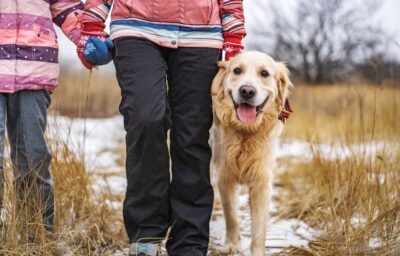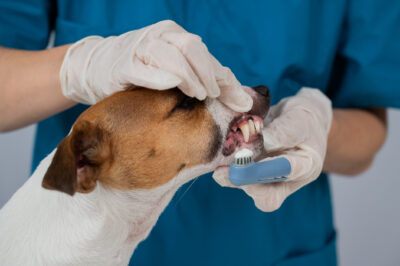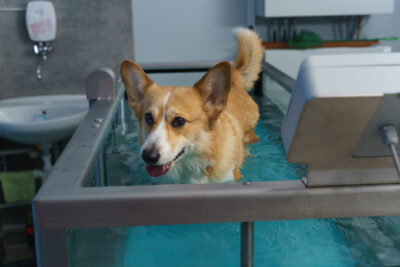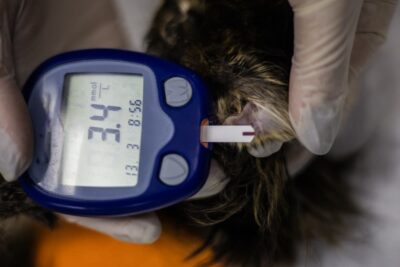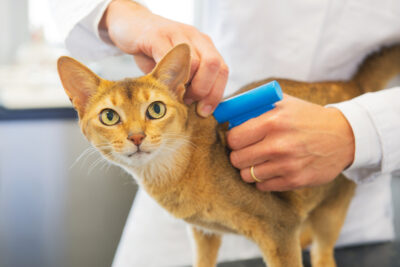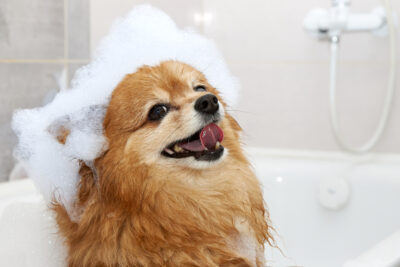9 Ways to Help Your Senior Dog Age Gracefully

Many of us will witness our dog’s entire lifetime, from puppy to adult, hopefully well into their golden years, and through their final days. It’s the joyful, adventure-filled, bittersweet privilege of being a pet parent.
The age at which a dog becomes a senior depends on their breed. Dogs enter seniorhood upon reaching the last quarter of the average lifespan for their breed. Most small-breed dogs live longer than large breeds whereas giant breeds live much shorter lives on average.
So why does senior dog age matter? As senior dogs age, their needs change. It’s a time to cherish, but also a time your dog requires extra support and is more vulnerable to health issues.
Knowing how to support your aging dog will keep them feeling their best and your bond strong as you journey together through this chapter of life.
9 Ways to Help Your Senior Dog Age Gracefully
1. Veterinary Wellness Check-ups

An ounce of prevention is worth a pound of cure; it’s a cliché for good reason. Veterinary wellness check-ups are vital in helping pets live longer, healthier lives.
While age is not a disease, senior dogs are more susceptible to age-related health conditions. Dogs age faster than humans, so a lot can change relatively quickly. Once your dog is a senior, a check-up is recommended every six months, or as directed by your veterinarian. Regular senior dog veterinary care is the best way to detect problems early and keep their health on track.
During a check-up, your veterinarian will perform a physical exam, discuss vaccines and parasite prevention according to your dog’s risk factors, recommend screening tests for senior dogs, and work with you to address any concerns.
2. Routine

Over the years, dogs develop habits and expectations for their day. Routines help them feel secure and at ease. Sudden changes can be particularly stressful for senior dogs, especially if they are visually impaired or have canine cognitive dysfunction — a condition similar to human dementia.
But life happens, and whether it’s a move, a new baby, or a pet parent becoming ill, something inevitably will disrupt their routine.
Here’s how to help your senior dog cope:
- If needed, get help with important parts of your dog’s routine, like walks, so they aren’t missed.
- Discuss anxiety-relieving supplements, medications, and pheromones with your veterinarian.
- Ensure your dog has a comfortable and quiet place to retreat to.
- Spend extra time comforting and reassuring your dog.
- Even rearranging furniture can be stressful for some senior dogs. When possible, keep their environment consistent.
3. Senior Dog Food

Feeding your dog high-quality food is vital for good health; however, the world of nutrition is confusing, complex, and full of strong opinions and marketing. So, in a sea of senior dog foods, which is the best for your dog?
Unlike puppy and adult foods, there are no official regulations defining “senior dog food,” so not all foods labeled as such are advantageous or appropriate for your senior dog.
And, if your dog has been eating the same food for years and is doing well, it is not essential to change foods.
However, as dogs age, their nutritional needs often change, and they may benefit from making a switch. With nutrition, there is no one-size-fits-all approach. The best choice for your dog will depend on their health and preferences. Your veterinarian is an excellent resource to help you choose a diet tailored to your senior dog’s needs.
4. Hydration

Adequate hydration is critical to your dog’s health and well-being. For many reasons, senior dogs can become dehydrated more easily and are more susceptible to the effects of dehydration than their younger counterparts.
Ways to support your senior dog’s hydration include:
- Ensure their water bowl is easily accessible, especially for dogs with osteoarthritis or mobility concerns. Raised bowls can make drinking more comfortable.
- Keep water bowls topped up and cleaned daily.
- Add canned food to your dog’s diet.
- Have water available on outings, especially after activities and during warm weather.
Several health conditions can cause inadequate or excessive drinking, so discuss any changes in drinking habits with your veterinarian.
5. Sleep

Getting enough quality sleep is a tenet of good health. Most dogs sleep at least 12 out of 24 hours, although this varies with your dog’s age, breed, activity level, and health.
Ways to support your senior dog’s sleep include:
- Consider an orthopedic bed for senior dogs.
- Have a temperature-regulated, accessible, and quiet sleep area.
- Help your dog burn off energy with exercise.
- A radio or TV quietly in the background lulls some dogs to sleep.
Snoozing more is common as dogs age, but excessive sleep or changes to sleep patterns may be a sign of pain or disease and should be brought up with your veterinarian.
6. Weather Protection

Older pets are more vulnerable to the elements, especially if they have a chronic health condition. Precautions will depend on your climate and the conditions for which your dog’s breed is best suited; a Malamute and an Italian Greyhound have different needs for weather protection.
In cold weather:
- Older dogs, especially those with thin fur or small breeds, should wear a well-fitted coat when going out.
- Winter booties protect feet from ice and salt while giving dogs with mobility concerns better traction on slippery surfaces.
- Your dog should always have access to warm, dry shelter.
In hot weather:
- Keep activities short and to cooler times of the day.
- Always have water available.
- Provide ways to keep cool, such as an air-conditioned space, a fan, or a supervised kiddie pool.
- Sand and pavement can become dangerously hot. If the surface is too hot for your hand, it could burn your dog’s paws.
7. Oral Health

Stinky dog breath isn’t a normal part of aging. It’s usually due to periodontal disease, one of the most common conditions affecting dogs. Over time, it causes bad breath, oral pain, tooth loss, and infections and has negative effects on the heart, liver, and kidneys.
In addition to professional veterinary dental cleanings, good oral care habits are important for your dog’s health. These include:
- Brushing your dog’s teeth daily with a dog-specific toothpaste. To learn how, read Brushing a Dog’s Teeth, or ask your veterinarian for a demonstration.
- Choose products approved by the Veterinary Oral Health Council (VOHC). VOHC-approved products have research supporting their oral health claims. They include dental diets, treats, chews, water additives, wipes, and toothpaste. When choosing dental chews for senior dogs, ensure they are an appropriate size and not too hard (you should be able to indent it with your fingernail).
8. Healthy Weight and Mobility

Obesity in dogs is linked to several health conditions, reduces quality of life, and can shorten your dog’s lifespan. Healthy weight and mobility go hand in hand. Osteoarthritis is painful and prevents dogs from engaging in exercise and play, making it hard to maintain muscle, flexibility, and a healthy body weight. Obesity worsens osteoarthritis, leading to a downward spiral of deconditioning and more pain, so it’s important to break this vicious cycle.
The good news is with a solid plan and veterinary support, obesity is preventable and reversible, and osteoarthritis can be managed.
- Ask your veterinarian to calculate your dog’s caloric needs and discuss diets for effective and safe weight loss. They may also investigate for underlying health issues, such as hypothyroidism, that cause weight gain.
- Avoid overfeeding and table scraps. Measure out your dog’s meals and use low-calorie treats.
- Ensure your senior dog gets an appropriate amount of exercise.
- Work with your veterinarian to address chronic pain. Medications, nutraceuticals, senior dog supplements for joints containing omega 3 fatty acids, acupuncture, and other pain-relieving therapies can help your dog feel better.
- Consider physical therapy with a qualified rehabilitation professional to improve comfort, function, and fitness.
9. Mental Stimulation

A dog’s never too old to learn new tricks (we started with a cliché, so we may as well end on one)!
Providing mental stimulation not only keeps your dog happy and engaged but may also slow down the effects of canine cognitive dysfunction.
Ways to keep your dog mentally stimulated include:
- Rotate their toys.
- Play games they enjoy such as fetch and hide-and-seek.
- Try new training exercises.
- Set up playdates with a dog of similar age and energy level.
- Engage your pup with senior dog toys that provide interactive puzzles and play.
Keeping Their Best Paw Forward
It’s important to adapt to your dog’s changing needs throughout their lifetime, and these tips can help you do just that for your senior dog. Preparing for your dog’s senior years starts on the day you bring your pup home, long before that muzzle starts to gray. While it’s not a guarantee for smooth sailing, sound habits over a lifetime can help you get more quality time with your canine companion and help them enjoy their golden years with grace.
